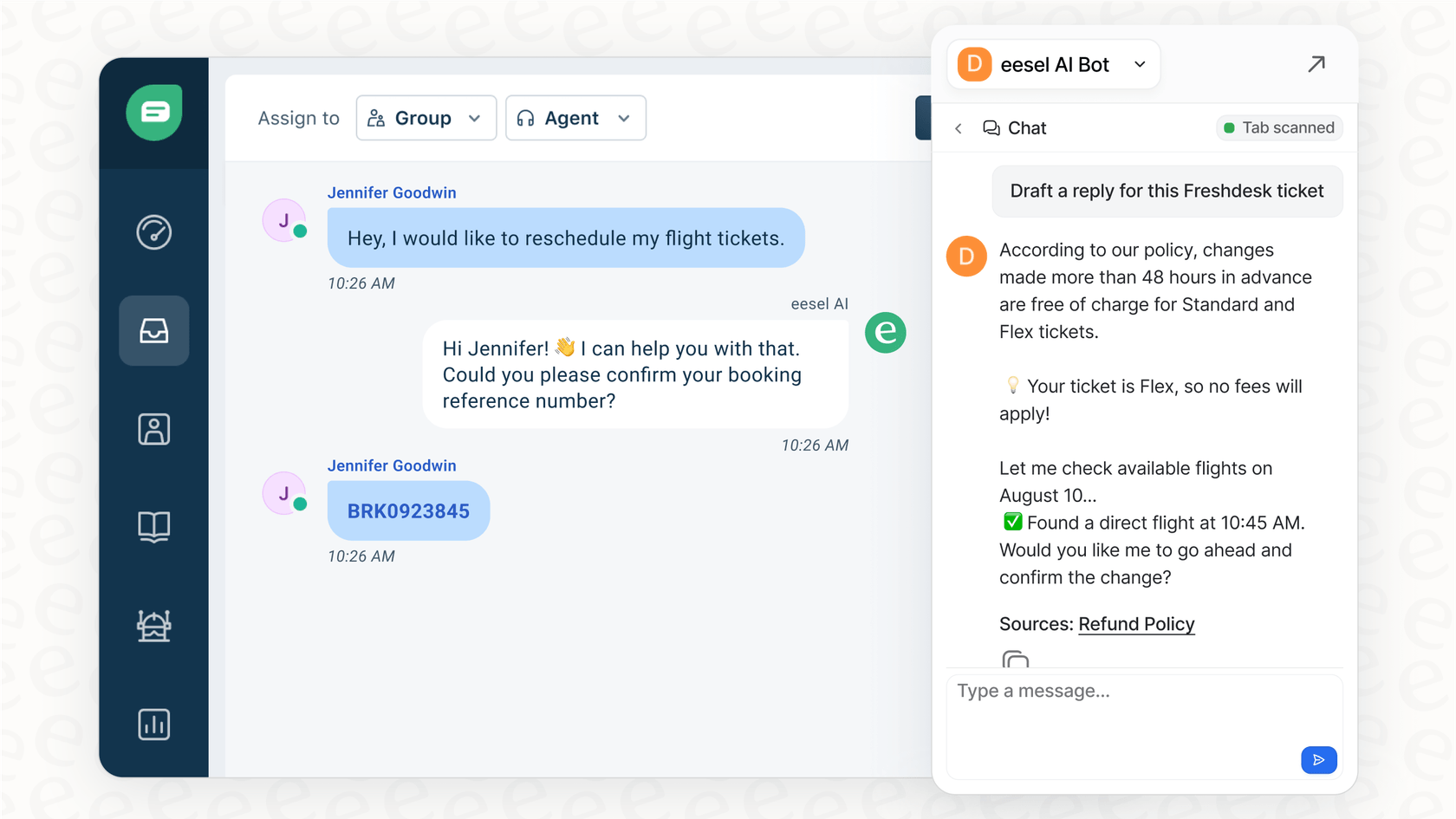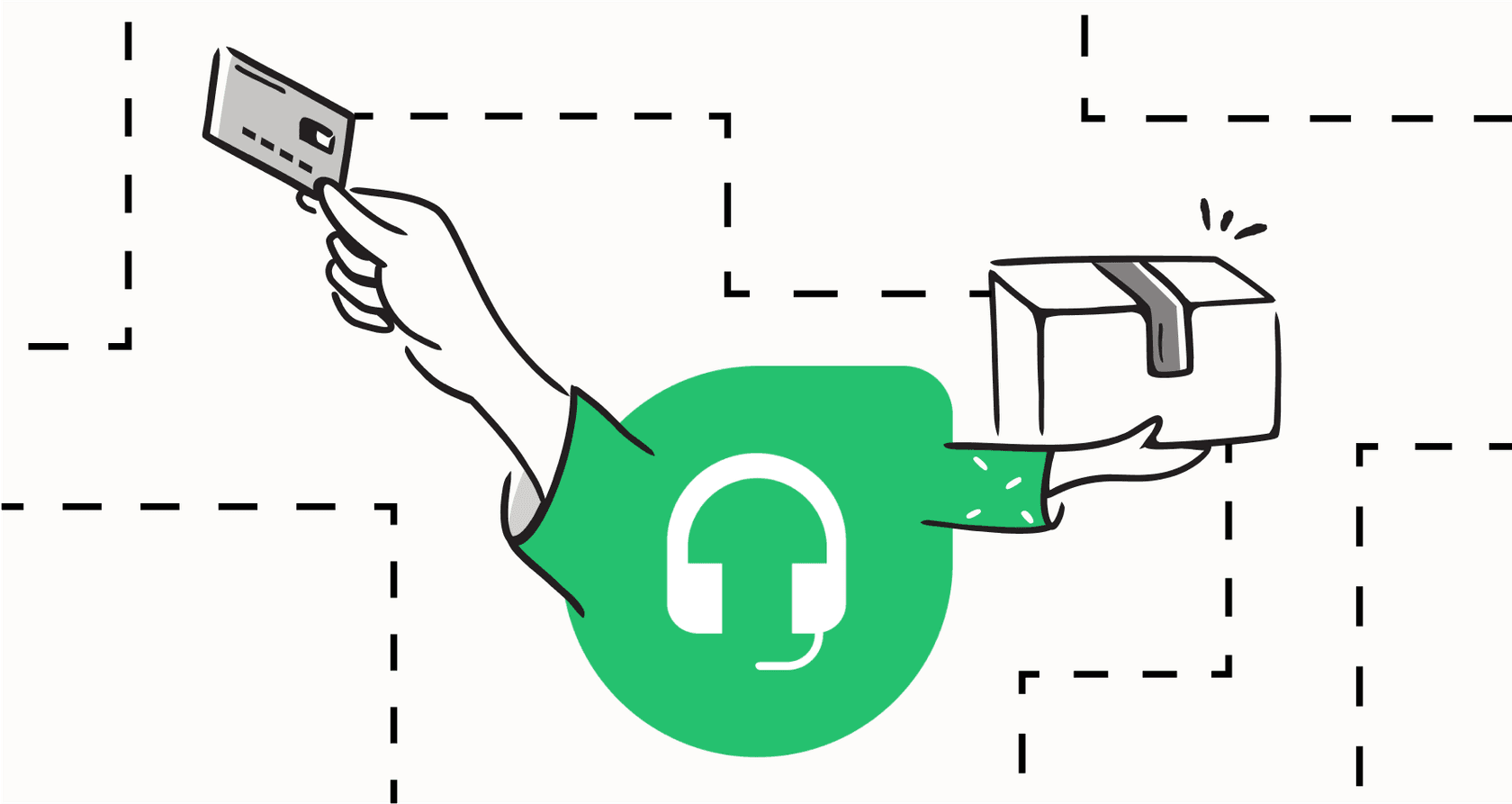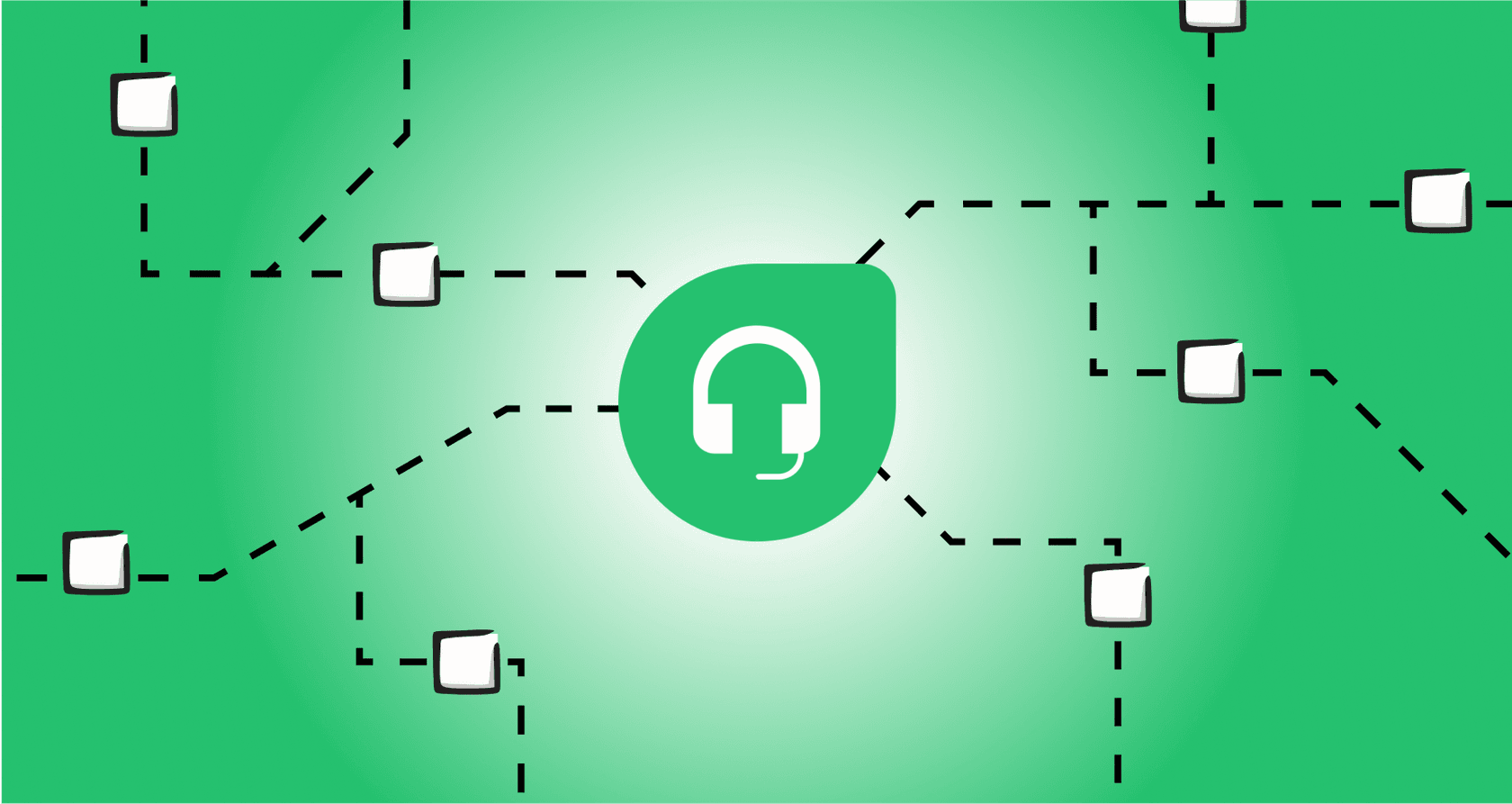A practical guide to Freshdesk private notes

Kenneth Pangan

Katelin Teen
Last edited January 16, 2026
Expert Verified

You know that moment when you need to quickly ask a colleague about a tricky support ticket, but you want to keep your internal discussion private? Maybe you need to loop in a developer for a bug report or just leave a heads-up for the agent taking over the next shift.
That's exactly what Freshdesk private notes are for. Think of them as the digital equivalent of a sticky note passed between teammates, keeping all your internal conversations right where they belong: inside the ticket, but completely out of the customer’s view.
This guide will walk you through everything you need to know. We’ll cover what private notes are, how to get the most out of them, and how to optimize your workflow as your team grows. From there, we'll get into how modern AI can complement the knowledge within those notes, helping your team's collaboration be even more efficient.
What are Freshdesk private notes?
Put simply, Freshdesk private notes are internal comments that only agents logged into your Freshdesk account can see. They create a separate, confidential conversation layer inside every ticket.
Their main job is to make internal teamwork less chaotic. You can use them to discuss a ticket's complexity with other agents, share internal updates on your progress, log troubleshooting steps for your own memory (or for others), or leave clear instructions for a colleague during a handover.
The difference between a private note and a public reply is simple but critical: notes are never sent to the customer. This keeps your internal chatter, technical debates, and brainstorming moments completely confidential.
Key features for collaboration
While the idea of a private note is pretty straightforward, Freshdesk has built a few features around them to make teamwork a bit smoother. Knowing your way around these tools helps you get the most out of the platform.
How to create and use Freshdesk private notes
Adding a private note is the easy part. Inside any ticket, you'll see the Add note option, which opens up an editor for your internal message. It's more than just a plain text box, and you have a few handy tools to work with:
-
Rich text formatting: You can use bold, italics, and bullet points to make your notes clear and easy to scan. This is great for things like checklists or calling out important details.
-
Attachments: Need to add a screenshot or a log file? You can attach it directly to the note to give your teammates more context without cluttering the main conversation.
-
@mentions: If you need to get a specific agent's attention, just type
@followed by their name to tag them. They'll get a notification, pulling them right into the conversation where you need them.

Collaborating better with private threads
As teams started relying more on private notes, Freshdesk introduced Threads to keep discussions organized.
A Private Thread is basically a chat-like conversation that you can start on any specific note or reply. Instead of adding a completely new note every time someone chimes in, you can keep the discussion focused and organized in one spot. This is a big help for a few reasons:
-
It helps manage the clutter in the main ticket view.
-
It keeps conversations organized by topic, so you don't have to scroll endlessly to find out what a specific discussion was about.
-
It lets you have focused, almost real-time chats while maintaining a clean ticket history.
Considerations for your workflow
While these features are great for daily collaboration, it is helpful to understand how Freshdesk handles certain scenarios so you can optimize your team's performance.
Managing customer replies in private notes
Sometimes, an agent may forward a ticket to an external contact. In some instances, if that contact replies to the forwarded email, the response can be pulled back into Freshdesk as a private note.
This is designed to keep external discussions internal until an agent decides to share them with the customer. To ensure these replies are noticed promptly, you can easily set up a ticket update rule to notify the assigned agent, ensuring seamless follow-up.
Automated private notes
Automations are a powerful way to streamline support. A common workflow is to automatically add a private note with a checklist or a time-tracking template to every new ticket.
It is worth noting that private notes created by automations are fixed to maintain a consistent system log. If your agents need to update a checklist or add more details, they can simply add a new private note to the ticket to keep the information current while preserving the original automated record.
Maximizing the value of shared knowledge
Even the most detailed private note is most valuable when it can be easily referenced by other team members. Freshdesk does an excellent job of storing this history, and as teams grow, they often look for ways to make this collective knowledge even more accessible.
This is an opportunity for internal knowledge sharing. By finding ways to surface the solutions documented in private notes, you can ensure that great work done by one agent can help the whole team resolve similar issues faster in the future.
The next level: Augmenting Freshdesk private notes with AI
A great way to manage and utilize your team's collective knowledge is to add an intelligence layer on top of your existing tools. This helps your team access the right information at the right time.
One option for this is eesel AI. It's a complementary tool that connects directly to your Freshdesk account in minutes, enhancing the experience for teams who are already comfortable with the platform.
Here’s how an AI layer can support your Freshdesk workflow:
-
It leverages your historical knowledge: The AI Agent from eesel AI can learn from your history of support tickets, including the context within private notes. It can then assist by providing answers based on your team's past successful resolutions. This helps surface siloed knowledge to benefit the entire team 24/7.
-
It improves internal collaboration: Instead of manually searching through old tickets, agents can get quick answers in tools they already use, like Slack or MS Teams. The Internal Chat from eesel AI provides instant answers sourced from your knowledge base, including past ticket resolutions and internal docs.
-
It assists agents with drafts: For tickets requiring a personal touch, the AI Copilot can suggest draft replies for your agents. It can reflect the tone and solutions found in both your public replies and private notes, helping to ensure every response is accurate and consistent.

Getting started with these types of tools is straightforward. eesel AI is self-serve, and you can even test it in simulation mode on your historical tickets to see how it might perform for your specific needs.
Freshdesk pricing
Freshdesk provides excellent value by making private notes and threads available across all of its plans, including the free tier. As your needs grow, paid plans offer additional automation and reporting capabilities.
Here’s a look at the current pricing structure for 2026:
| Plan | Price (Billed Annually) | Key Features |
|---|---|---|
| Free | $0 for up to 10 agents | Ticketing, knowledge base, reporting. |
| Growth | $15/agent/month | Automation, collision detection, custom ticket views. |
| Pro | $49/agent/month | Custom roles, advanced reporting, round-robin routing. |
| Enterprise | $79/agent/month | Skill-based routing, audit logs, sandbox. |
Note: Prices can change, so it's always a good idea to check the official Freshdesk pricing page for the latest info.
From Freshdesk private notes to active intelligence
Freshdesk private notes are a reliable and essential tool for internal collaboration. They keep conversations organized and confidential right where they are needed most. By understanding how to work with features like threads and automations, you can build a very effective support engine.
The next step for many scaling teams is to turn that static internal knowledge into active intelligence that supports agents and improves efficiency.
Ready to see how you can further empower your Freshdesk team? Try eesel AI for free and see how you can get set up in just a few minutes.
Frequently asked questions
Freshdesk private notes are internal comments visible only to agents within your Freshdesk account. They create a confidential layer of conversation inside a ticket, allowing team members to discuss, share updates, or leave instructions without the customer seeing the exchange. Public replies, in contrast, are the messages sent directly to and visible by the customer.
No, customers cannot see Freshdesk private notes. These notes are designed to be completely confidential and are only visible to logged-in agents. This ensures that internal discussions, troubleshooting steps, and team handovers remain private and do not clutter the customer-facing conversation.
You can collaborate effectively by using features like rich text formatting and attachments to provide context. Crucially, @mentions notify specific colleagues, and 'Private Threads' allow focused, organized discussions on particular notes or replies, reducing clutter in the main ticket history.
Common considerations include instances where customers might reply to forwarded emails, which Freshdesk logs as private notes to keep them internal. Also, private notes generated by automations are designed to be static to maintain a clear audit trail of system actions.
According to Freshdesk's current system, private notes created by automations are permanent to ensure the integrity of the automated process. While these specific notes cannot be edited, agents can always add a new private note to provide updated context or instructions.
To make the most of the knowledge within private notes, integrating a complementary AI platform like eesel AI can help. It can learn from your ticket history, including private notes, to assist agents by suggesting solutions based on past discussions.
Yes, Freshdesk private notes, along with the ability to create private threads, are available across all of Freshdesk's plans. This includes the free tier, making internal collaboration accessible for teams of any size.
Share this post

Article by
Kenneth Pangan
Writer and marketer for over ten years, Kenneth Pangan splits his time between history, politics, and art with plenty of interruptions from his dogs demanding attention.





